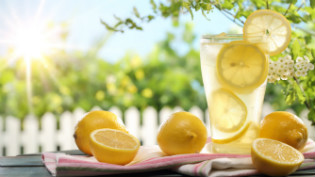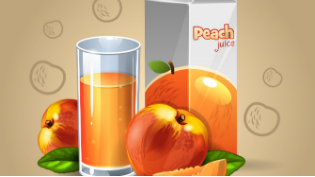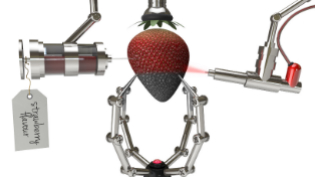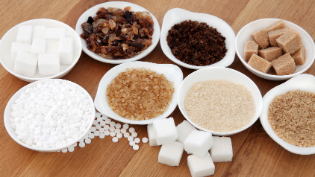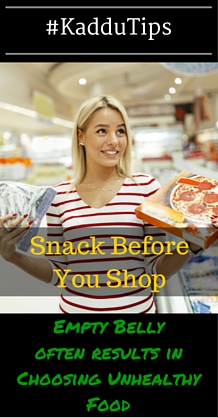
11 Worst Healthy Foods for Your Body
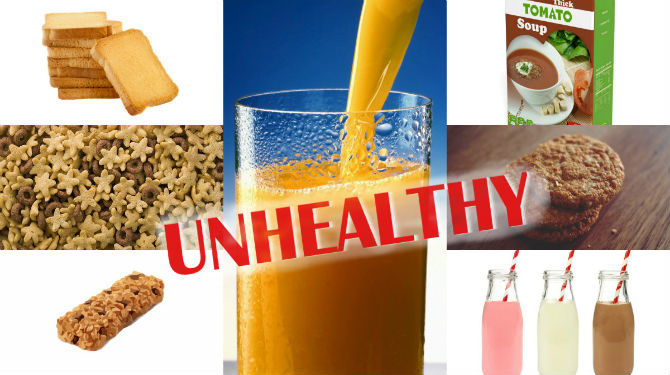
Yes ! You read that right. Two opposite words - worst and healthy used in the same sentence. But, how can healthy foods be bad?
Well, the so-called healthy foods contain a few undesirable/unwanted ingredients making it the worst health food. Here’s presenting you a list of 11 Worst Healthy foods. Stay away from these -
Flavoured cereals
Muesli and oats are great cereals. However, addition of fruit powders, cocoa, vegetable powders and flavour enhancers ruins the goodness. How?
The flavours used are not always natural. Savoury flavoured oats tend to be high in sodium (which makes your blood pressure dance). Due to the processing, fruit powders have lost some of the natural nutrients present in them. To make it a cost effective product cheap sugar substitutes such as maltodextrin and high fructose corn syrup are often added.
In a gist, flavoured cereals are often cereals + unwanted sugar/sodium. Instead, opt for unflavoured varieties.
Whole wheat khari/toast/rusk
Whole wheat ofcourse is a better bet over all-purpose flour. However, it's combination with khari is not a good option.
Khari, though seems to a be light product, contains margarine/ghee/vanaspati. All these are sources of trans fats. Trans fats clog your arteries , obstruct blood flow and cause trouble to your heart.
Brown bread
Bread is an indispensable packaged food product. Every household now routinely consumes bread.
The criteria for selecting perfect bread should be scanning for the terms - whole wheat / 100% wheat and not the term ‘brown’. Whole wheat or 100% wheat ensures that the bread is made of wheat flour. Brown bread does not guarantee the same and may actually contain maida with colouring agents to make it look like whole wheat bread. Multigrain breads should be preferred only if more than 50% of the product contains different grains.
Mixed fruit juice
Fruits are a great storehouse of anti-oxidants , vitamins and fibre.
When you extract juice from the fruit, you lose out on the fibre content. The peeling, chopping , blending and pasteurisation of the fruits leads to destruction of nutrients.
Thus, fruit juices end up being loaded with sugar and provide hardly any goodness. Instead, swap fruits for fruit juices.
Sugar-free beverages / biscuits / cereals
Diet colas or sodas taste very sweet. This sweetness is due to the ingredient acesulfame and aspartame. Both are artificial sweeteners. However, studies say that aspartame may lead to weight gain. The high-intensity sweetness makes you crave for more such highly sweetened foods and drinks. Besides, aspartame can be toxic to brain cells that regulate food intake, you thus end up eating more ( excess calories).
Biscuits and cereals labeled as 'Sugar-free' or 'no-added sugar' contain sugar aliases such as malt extract, fructose or artificial sweeteners such as maltitol and sorbitol, which are known to cause gastric discomfort and have a laxative effect.
In such cases, it's better to consume 'white sugar' containing foods rather than chemically synthesized sweeteners ( Ofcourse, quantity matters ).
Low fat/ Low sugar products
When fat is removed from any product, it tastes yuck ( you too agree with it). To replace the sensory appeal, the product is then loaded with sugar. Also, low fat does not mean low calories. Same is the case with low sugar products. One needs to understand that foods with a balance of nutrients is preferred rather than excess of one and less of the other.
Ready to Eat (RTE) soup
Soups are a great way to improve your vegetable intake ( I mean home-made soups).
The Ready to Eat (RTE) soups available in the market contain dehydrated vegetables. Dehydration process leads to loss of some nutrients. These soups have higher sodium content as compared to the soups made at home. Excess sodium increases your risk for heart disorders.
Microwave/Packaged Popcorn
It’s fun to see the popcorn bag bulge and hear the corns crackle.The aroma is tempting too. While this is happening, the chemical lining in some of the microwavable popcorn bag - perfluorooctanoic acid (PFOA) enters the popcorn. Studies report that PFOA can cause heart diseases and even cancer. Such popcorns are loaded with fat too. It’s indeed a delicious danger. Instead, pop your own corn. Popcorns make great snacks.
Oats biscuit
Oats , rich in fibre aids in weight loss and maintaining a healthy heart too.
Biscuits are crisp and crunchy. They have a form which is not possible without the addition of fat. When oats or any high fibre ingredient is added, the amount of fat required to bind the fibres is much more. The biscuit thus ends up being loaded with fat.
Flavoured milk
Milk is great ( and that’s why your mom ran behind you with a glass of milk).
When flavours such as mango,chocolate and vanilla are added to it, sugar too is added. You thus end up gulping down excess sugars.
Energy Bars
Some of the commercial granola and weight loss bars contain corn syrup and excess oil loading the bar with sugar and fat. The protein and fibre content add to the nutritional value but is it a good bargain ?
Granola bars can be easily made at home - just mix and match foods and invent a snack for yourself. Muesli, popped rajgira, nuts and seeds, spices for flavour and honey/jaggery - mix them - shape in to bars - refrigerate - home-made granola bar is ready.
You have heard of the saying - ‘Do not judge a book by it’s cover’. The same applies to packaged food. One must know to read between the lines - read the ingredients and nutrition label. That’s your guide to choosing a product and not the fancy packet or name.

